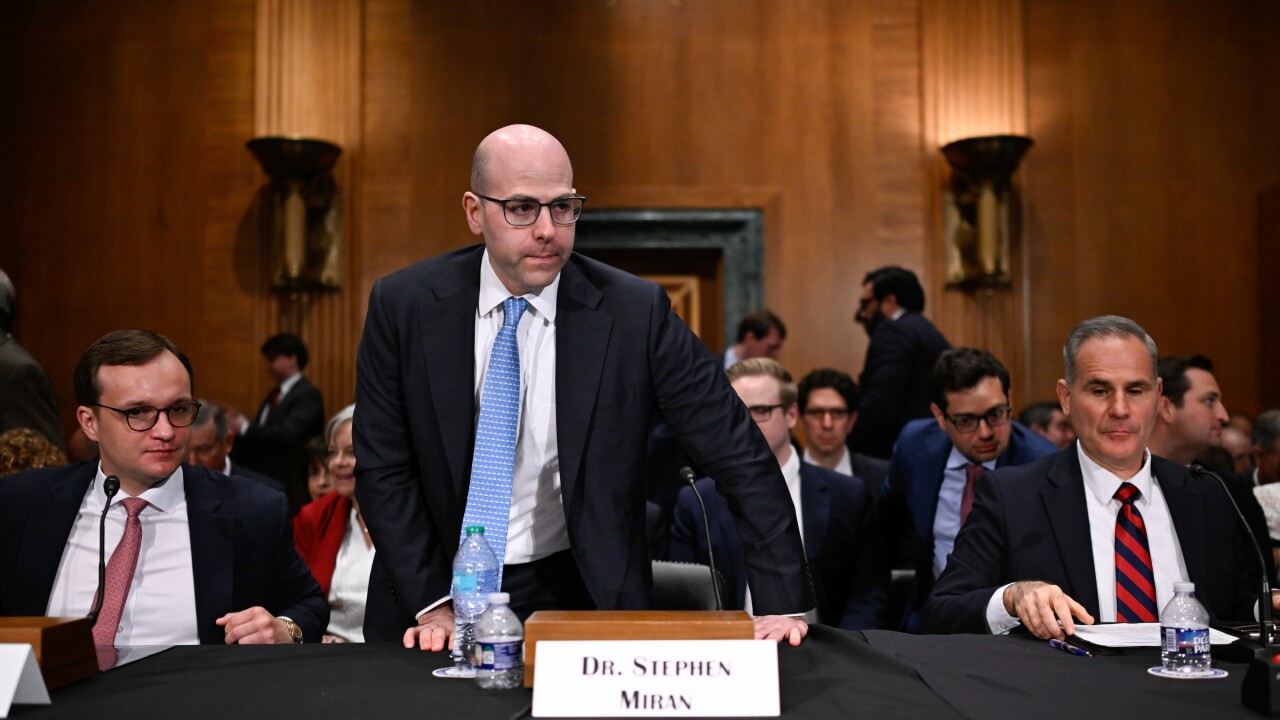-
MetLife is asking a federal court to force the Financial Stability Oversight Council to hand over documents that the agency says are protected by confidentiality agreements, saying those agreements cannot shield discovery if they are the basis of a systemic designation.
June 29 -
The insurance provider said that it is not eligible for designation as a Systemically Important Financial Institution because it is not primarily a financial company, and even if it were, FSOC wrongly used the firm's size alone to subject it to heightened regulation.
June 18 -
Just as U.S. regulators shy from labeling individual asset management firms as systemic, an international group of securities regulators is similarly abandoning a firm-by-firm approach.
June 23 -
Federal Reserve Gov. Daniel Tarullo laid out his vision for identifying and addressing any possible risks in the asset management industry, which he said centers around run risks and potential for creating excessive leverage.
June 4
Banks don't have a monopoly on systemic risk. While everyone remembers the
Thus the Dodd-Frank Act created the Financial Stability Oversight Council to
The FSOC has been very deliberative and conservative in exercising this responsibility, designating
At the center of the controversy over the FSOC is its recent
The FSOC detailed its designation in a 341-page explanation, finding
Nevertheless, MetLife
High-risk finance and its allies always claim that strict regulation imposes too heavy a cost on the private sector. But they fail to mention that years of deregulation and non-regulation set the stage for the unexpected financial explosions that were the hallmark of the 2008 crisis, imposing
If MetLifes lawsuit succeeds and the FSOC's critics have their way, systemically significant nonbanks could wind up as unregulated as they were before the crisis. That would be asking for more surprises, bailouts, and another catastrophic financial crash.
Dennis Kelleher is president and CEO of Better Markets. Follow him on Twitter





